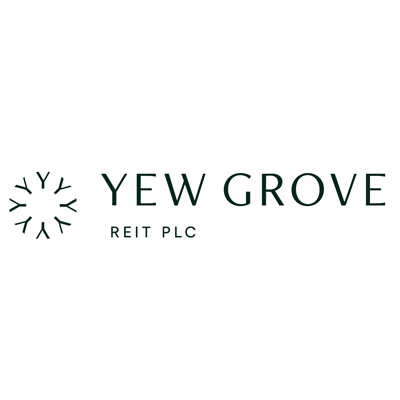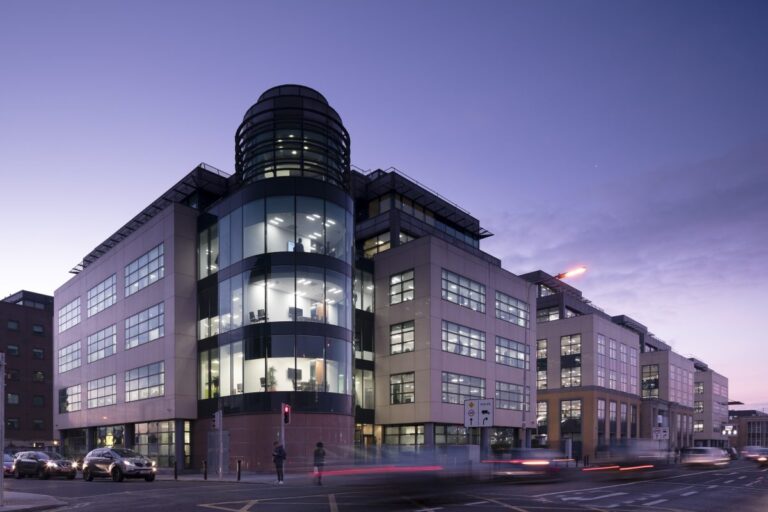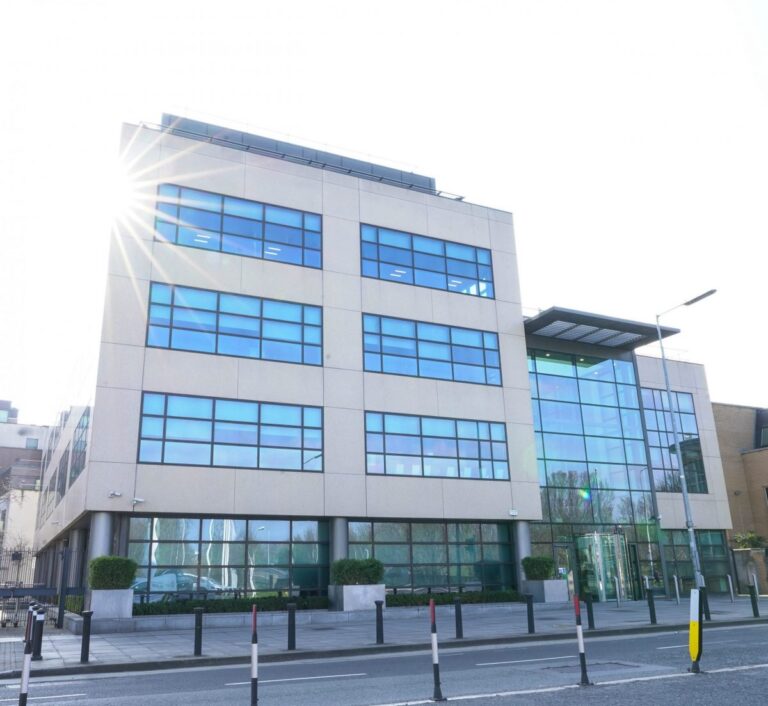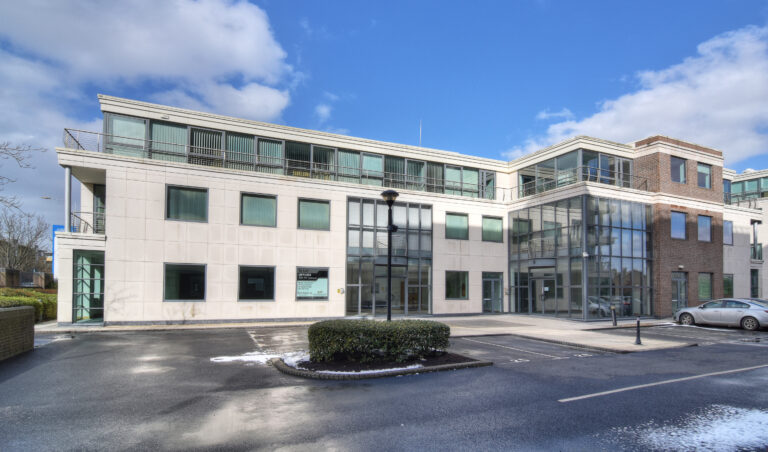YEW Grove REIT PLC (LON:YEW) Chief Executive Officer Jonathan Laredo caught up with DirectorsTalk for an exclusive interview to discuss their interim results, their portfolio, the 12-month share issuance programme and progress in the second half of the year.
Q1: First off, congratulations on your results today. Jonathan, can you just talk us through the main highlights?
A1: The main highlights for us were, as a company and the key points we made when floating in June 2018 were that, we wanted to ensure a) we spent all of the capital we raised and b) we wanted to make certain that our expenditure was on buildings which fit in with our investment policy.
We’re pleased that, at the end of June this year, not only had we spent the €75 million we raised initially, we’d raised a revolving debt facility with AIB and that money has also been spent. Just post the period-end, we instituted a share equity programme for another €100 million of which the first €10 million has been drawn and spent.
We now have a portfolio of very strong buildings with a current rental of circa €8 million, we instituted a quarterly dividend programme and for 2019, the dividends to date – the first and second quarter dividends, total some 4.33 cents per share. So, we’re on track to pay at least a 7 cent dividend which his what we said to shareholders we would pay.
So, all in all, we’re very pleased, it’s been a very good start, very busy but very good.
Q2: Including the post period-end, you’ve added five properties to your portfolio, can you tell us a bit more about this and what the YEW Grove REIT portfolio consists of now?
A2: This year, in 2019, we bought a building in Cork Airport Business Park, a building in Waterford, three buildings in the IDA Park in Athlone and we also developed a car park.
Our properties now consist of a series of properties in what we call our ‘Dublin catchment area’ so we invest outside of the traditional CBD in Dublin and we have principally offices in Dublin although there are a couple of the smaller industrial units to the south of the city.
We have two offices, one on the outskirts of Cork and one in Cork, we have a series of industrial buildings in the Midlands in the Ireland; in Athlone, and some buildings up in the north.
What we focus on are buildings that are popular and will remain popular, principally with foreign direct investors, large multinationals that see Ireland as a very good place to site their businesses and/or the government where the government in Ireland is substantially regionalised and therefore look for high quality offices in those areas where they operate.
What we like about the FDI exposure is that most of the foreign direct investors in Ireland are actually large companies in high growth sectors and most of our tenants are actually looking to grow. So, because there’s been not very much investment in new properties, outside the centre of Dublin, between the financial crisis in 2009 and, let’s say, 2017/18, that’s actually a shortage of suitable properties for those tenants.
So, buying those properties, looking after the tenants has two benefits for a company like ours. Firstly, pressure on rents in upwards, there is more competition for suitable space and that drives rental pressures upwards and secondly, if you’re a landlord looking after tenants, you can grow with your tenants.
A number of our asset management initiatives enable us to have a win-win where we can develop larger and better facilities for our tenants and our tenants are happy to extend their leases, pay the market rents, those series of things which end up being good for both the tenant and for our shareholders.
Q3: Can you talk us through the 12-month share issuance programme for €100 million, announced in June this, year, how’s that continuing?
A3: Anybody looking at YEW can see we’re a very small company and when we floated, €75 million, that was the lower end of what we wanted to raise but it was good enough to get floated.
Within the REIT world, to get to the defined small cap reach you need to be €250 million to €2 billion in size and clearly, that’s one of our ambitions to grow the company to at least that size. The size of the investable non-central Dublin market is, give or take, €13-14 billion. It’s a very large and very underinvested market, when I say underinvested, I mean underinvested by institutional investors.
It’s quite important to us that we grow our business and we capture a large size of that market and I think it’s quite important to the shareholder in general, equity shareholders look at a company like ours and say, as you grow and as you become larger, you become more interesting to equity investors.
The issue of the €100 million programme was to enable us over the period from July, when it was approved, over the next 6-12 months to use that capital, provided investors like what they’re seeing, to grow our portfolio and move us from current share capital issuance which is €85 million to €175 million. Once we’re there, we’ll move forward again.
What we’re about is controlled growth, we want to increase the size of the company which increases liquidity in the shares and it allows us to carry on building a valuable portfolio.
Our view is, over the period 2019 through to 2021/22, we would hope that the portfolio grows to somewhere in the region of €400-€600 million, that’s a sort of number which I think is more than capable of doing.
So, the share issuance programme is the first step in that process.
Q4: You’ve had a great first half, how has the second half of the year started off for YEW Grove REIT?
A4: We’ve got a very strong pipeline of potential property acquisitions in front of us and we will have to see whether the current potential volatility in the market which has been triggered by the ongoing Brexit discussions, whether that effects the investor appetite.
When we just look at the Irish property market, all of the signs are very good. Just this morning, I oversaw the sale of a fairly hefty portfolio from Starwood, at a good price, that is a large expression of confidence in the Irish property market.
We see a really interesting, and we think valuable, opportunity to buy properties and we are in discussions with vendors to make those property acquisitions. Clearly, in order for us to completed those, we will need to convince shareholders and potential new shareholders that Ireland is still a good story and what we’re doing is worthwhile
Now, absent the Brexit discussions, that would be not straightforward but we’d be reasonable confident that we’d get that done. We think Brexit is more a distraction to what we do rather than central to what we do but until we’re in front of shareholders, clearly, we can’t say one way or another how they’ll react.








































